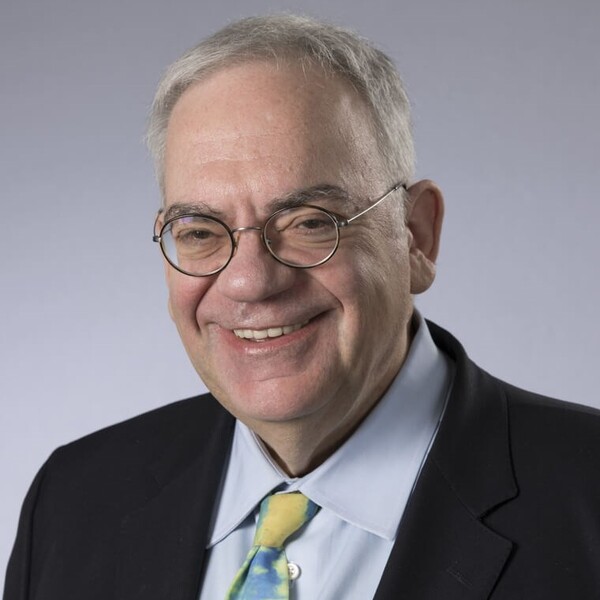A Fulfilling Career Focused on Geriatric Psychiatry
Spotlight On: Dr. Bruce Pollock

Dr. Bruce G. Pollock has numerous professional achievements to reflect upon. As a practicing psychiatrist, he was able to translate his clinical observations into research questions, which, through collaborations with others throughout his career, helped him contribute to a burgeoning field.
Early in his career, Pollock immersed himself in the discipline of clinical pharmacology and applied it to geriatric psychiatry. He became interested in how older adults, who were frequently prescribed medications at doses that were either too much or too little, metabolized these drugs.
Dr. Pollock's immersion in population pharmacokinetics – the study of varying drug concentrations – helped to focus his work on the interaction between psychiatric drugs and the many other medications that older adults take at this time of life. He developed projects that objectively measured the cumulative anticholinergic effects of varying drugs on cognition. He also led projects that shifted the then prevalent use of antipsychotic drugs to treat agitation accompanying dementia, towards the use of alternative medications such as antidepressants.
Before it was widely recognized that information provided by manufacturers on newly available antidepressants and antipsychotics was quite limited - traditionally including predominantly men of European background, at middle age and younger; or, if older, in good health without medical complexity - Pollock and others noted that part of the reason the clearance of psychiatric drugs was poorly understood in older adults, was that drug trials did not include this population.
Working with others, Pollock designed clinical protocols that focused on older adults. His results advanced the knowledge of inter-individual variability in drug concentrations and related drug responses in older adults. His laboratory also focused on age-related changes in drug metabolism and pharmacodynamics toward optimizing treatment with antidepressants and antipsychotics in older people.
Dr. Pollock has won many awards and grants and earned leadership positions on both the research and the clinical side. However, the professional achievement that he takes the most pride in is helping shape and expand the field of geriatric psychiatry in Canada and internationally.
“A geriatric psychiatrist is like a family doctor, even more so,” said Pollock. “She or he has to know the patient well, know their families and how they live their life, in order to provide the patient the individualized care they require and deserve.”
Specifically, Dr. Pollock explains, a geriatric psychiatrist needs to know all the drugs, including over the counter medications that a patient is taking. In some cases it is necessary to de-prescribe and to be alert to the fact that cognitive impairment may be caused by the "medication burden" that patients are bearing.
Dr. Pollock received the Order of Canada in December of 2023. One of the side benefits of this honour has been reconnecting with many people from his past, with whom he grew up in Toronto, but lost touch with over the intervening decades when he was working in the U.S.
This deep sense of connection and collaboration with people, both professionally and personally, has helped drive Dr. Pollock and his achievements, and that is where TDRA comes in. Dr. Pollock was involved in the early days of the TDRA – collaborating with other researchers in Toronto’s academic hospitals, to help delve into the devastating conditions they were seeing. A small group of neurologists, psychiatrists, psychologists, and scientists working together informally over the years became what TDRA is today.
While he is now retired from clinical practice, Dr. Pollock looks forward to continuing to collaborate on research projects with TDRA executive director Dr. Tarek Rajji and others. For more on Dr. Pollock in his own words, click here.
